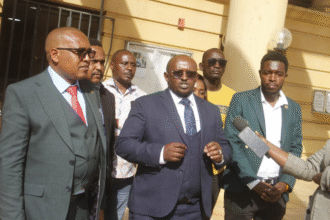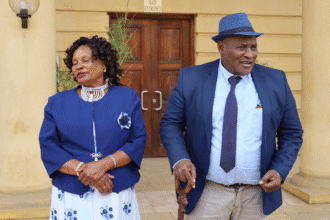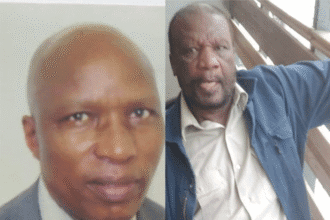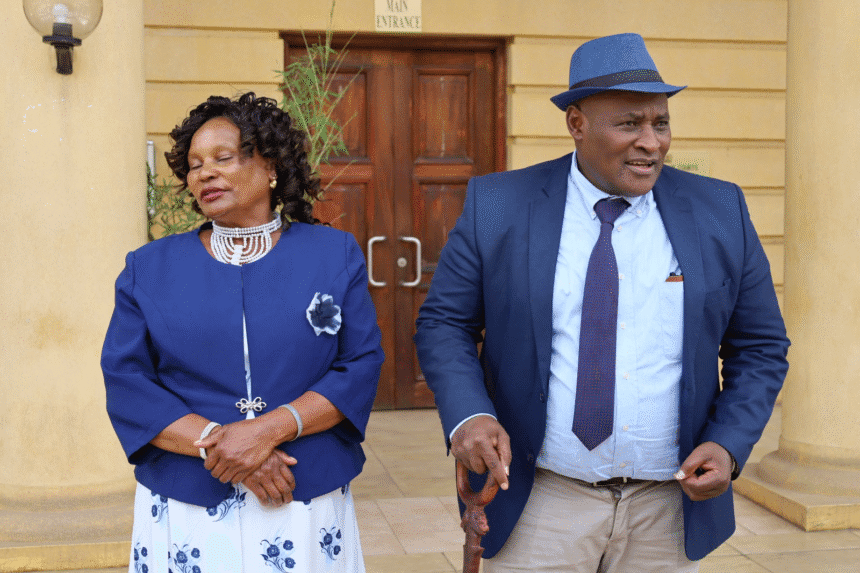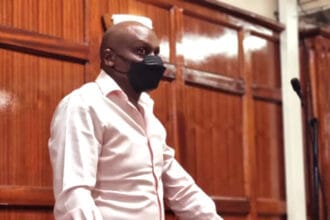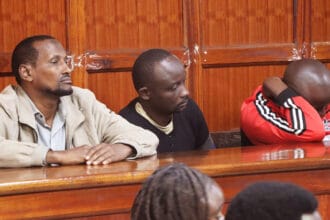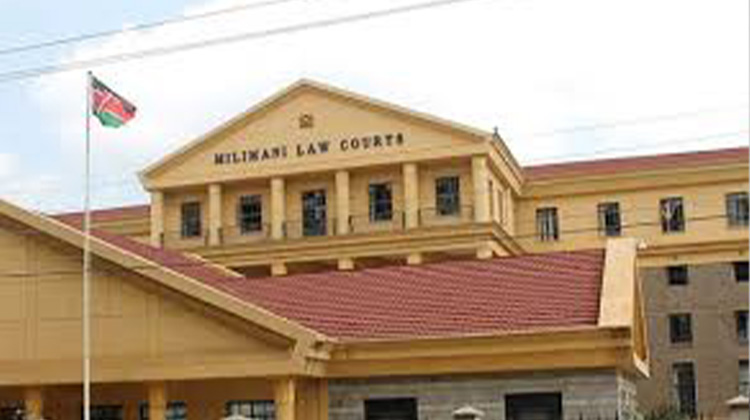A shadow has fallen over a family in Kenya, a void stretching over four years since a son vanished from a Nairobi street.
Now, his mother, armed with little more than a mother’s resolve and a sheaf of legal documents, has walked into the High Court of Kenya to demand answers from the state itself.
The story, detailed in an urgent court petition, begins on June 12, 2021. Mwenda Mbijiwe was driving through the Roysambu area, en route to Meru, when his life was violently interrupted.
According to a sworn affidavit by his mother, Jane Gatwiri Mithinji, her son was last seen being bundled into unmarked vehicles by men in civilian clothing—men the family believes were officers from the Directorate of Criminal Investigations (DCI).
He disappeared into thin air, becoming another name in the grim ledger of Kenya’s missing persons.
The anguish of not knowing is compounded by a chilling detail: before his abduction, Mbijiwe had already reported that his life was in danger. He had filed an official report at Central Police Station, a plea for help that seemingly went unheeded. His family now suspects his disappearance is linked to a radio interview he gave just two days earlier on Muuga FM, where he spoke on matters of security, a topic that often brushes against powerful, hidden interests.
Even the car he was driving that day, a vehicle registered to another individual, was later found abandoned—a silent, metallic witness to a crime with no culprit.
For over four years, his family has existed in a state of agonizing limbo. Follow-ups with various security agencies have yielded nothing—no information, no leads, only a deafening silence from the institutions tasked with protection. This silence has now driven them to the halls of justice.
Through their lawyers, Ondieki & Ondieki Advocates, they have filed a petition against the highest echelons of Kenya’s security and legal system: the Attorney General, the Inspector General of Police, the DCI, the Office of the Director of Public Prosecutions, and the National Police Service.
Their request to the court is simple, yet profound in its desperation. They ask the court to order the state to produce Mwenda Mbijiwe, to bring him before a judge, “dead or alive.”
It is a heart-wrenching plea that underscores the depth of their despair. They seek not just his release, but any form of answer—any sliver of truth that could puncture the unbearable uncertainty.
The legal filing argues that this is not merely a missing person’s case, but a fundamental breach of the Kenyan Constitution.
It cites the right to life, liberty, and security, and protection from arbitrary detention. By holding him without charge, without trial, and without any acknowledgement, the state, the family alleges, is not just violating a man’s rights but is eroding the very rule of law it is sworn to uphold.
The court has been asked to treat this as a matter of extreme urgency. For Jane Gatwiri Mithinji, and for a family suspended in grief, every second that ticks by is a lifetime.
Their court papers are more than a legal motion; they are a mother’s cry into the void, demanding that the state she lives under finally tells her what it has done with her son.

